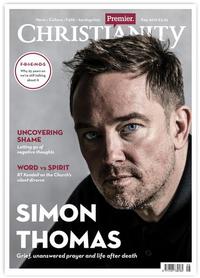
1. Trump and the voice of certainty
Last July, Trump described himself as “a very stable genius”. Many of us raised an eyebrow and many others sniggered. He is not a genius in any normal sense. But he is unique.
I am reminded of Barack Obama’s summary of him in 2016 as “uniquely unqualified”. You could add to that "uniquely bad-mannered". And his personal ethics are also probably unique, at least for one holding such high office.
And yet as he completes his second year as President he continues to wrongfoot his opponents and defy his critics. Most are reluctant to credit Trump with any intelligence, or success, and it’s easy to line up and throw stones at him. But this thinking is dangerous and mistaken.
Trump has one characteristic that unfailingly draws people to him: he radiates certainty. He takes the “truth” as he sees it and he calls it out. He doesn’t care about the consequences. There are many examples from 2018, including his blunt statements that Europe is not paying enough into NATO, that Britain will struggle to trade with the US, that immigration erodes a country’s culture, or indeed his peculiar view on climate change. We often disagree with him, but we are never in doubt as to what he thinks. Even when he changes tack, and takes a new line, he does so without a backward glance. This becomes his new certainty.
Certainty sells – even if you are certainly wrong.
Is that one reason why conservative churches tend to grow faster than liberal/progressive churches? People seem to look for certainty, much more than they look for discussion. Certainty sells.
2. Do we still need a voice of Remembrance?
This year we marked 100 years since the end of the first world war.
And a question that gets asked every year is “why are we still doing this?” After all it is now so long ago there is no one left who took part. Remembering lives lost seems worthy enough but it’s increasingly difficult as few of them are known to us, and there is always a risk that in creating an atmosphere of music and medals we end up glamourising war.
But for me, the simplest yet most profound answer to “why remember?” came from The Michaels family who star in Gogglebox, no less. It was while watching the Remembrance service last year that Mrs Michaels momentarily looked up from her knitting to remark “why don’t they just remember not to go to war?”.
Conflicts and wars start over small incidents. The shooting of one man started the first world war. No one anticipated the end result.
3. The voice that silences discussion
In the old days someone in church meetings would simply say, "health and safety" and it always ended a discussion. It was a kind of magic spell, an incantation, once someone said it you were not allowed to answer back. You had to shut up because you didn’t want to fall foul of frightening laws you didn’t understand. It took me years to work out that sometimes what they were saying was not health and safety law at all; sometimes it was not even good practice, it was hearsay. But it became a conversation-terminating cliché.
Today there are so many more ways to silence the conversation. It’s trendy now to be indignant - especially on behalf of someone else. Often this indignation is well-meant but equally often it is poorly informed. 2018 provided a continuous stream of cases where “contentious speakers” were no-platformed at universities in order to provide a “safe space”; a comedian was famously told to avoid any jokes based on religion, age, class, race, disability, and sexuality ("what’s left to joke about?" he asked politely); and, most notably, Boris brought things to a head with his comment on burkas. I don’t agree with the way Boris made his comment, but it’s not a reason to censor that discussion.
More serious than Boris being accused of Islamophobia is the fact that one local council after another claimed they were unable to protect young, vulnerable girls from sexual exploitation because the gangs responsible were largely Pakistani. A politically incorrect conversation was terminated, and the tragic cost was that young lives were demolished.
Yes, there really is racism, sexism and persecution of minorities. And sometimes we will need to remove speaking privileges from someone who promotes extremist views. But much more often we need to step back from this “being offended on behalf of other people”, (and ask them how offended they actually are).
General indignation has become a kind of badge used to feign the moral high-ground. And in a charged atmosphere of political correctness, it has become almost impossible to freely discuss opinions in an atmosphere of mutual respect. Even worse, continually censoring topics for example around race or sexuality in the end feeds the hatred we were trying to prevent.
Speaking the truth in love is really hard, not least because we probably don’t agree what “truth” is. And that’s why the way we discuss things (the “love” bit) matters at least as much as anything we have to say.
4. The voice that knows you completely (…and I don’t mean God)
It was the year that Google turned 20 and Facebook kept popping up in the news for all the wrong reasons – not least their leaking of peoples’ personal data to Cambridge Analytica.
Personal data is now the most valuable commodity in the world. Which websites you visited, where you uploaded your holiday snaps from, what you “liked”, what you searched for on Google - it’s all tracked. It has to be. These companies offer free services, but they still have to turn in a profit for their shareholders. Every quarter must show increased revenues from the quarter before and that means ever more targeted ads must be delivered to you in the expectation that you will click on them. And we, the consumers, happily hand over this personal data in return for convenient one-click shopping and to get those “recommended for you” offers.
Driving this monetization of personal data is our addiction to smartphones. They're the technology equivalent of sugar – they keep us wanting more. This was evident a few weeks ago when the O2 mobile data service went down in several countries. Dramatic headlines ran for 24 hours. Watching the news you would have thought we were being deprived of breathable oxygen, not just O2’s mobile data.
This addiction to devices is all the greater because technology is now so much a part of everything we do – work, play, church - we no longer notice its increasing creep. And of course we tell ourselves “I’m not addicted – even if everyone else is” (if that’s you, well try putting your phone away for a couple of days).
When Paul says we need to guard against powers and authorities, I believe this includes any “authority” that eventually tends to replace God.
So where do you go for your guidance? Where do you go to answer important questions? Is it God or is it the web?
5. The voices that bring life
There was a great deal of good news in 2018 as well. There was a royal wedding - remember that sermon from Bishop Curry? There was the small matter of a football competition from which England emerged surprisingly un-humiliated. And there was another football team of boys who were rescued from what seemed to be certain death in a cave in Thailand. We need to listen out for the good news stories, be fed, be encouraged, and give thanks.
And there is that still small voice that God most often adopts. It can come to us in many guises, but it is easily missed in our 24/7 frenzy of information and entertainment. We strive for so many things, don’t we? There is so much going on. But if you strive for anything in 2019, strive to make more space for this voice. Strive to make more space for Jesus.
Get more articles covering news, culture, faith and apologetics in every print issue of Premier Christianity magazine. Subscribe now for HALF PRICE (limited offer)




























